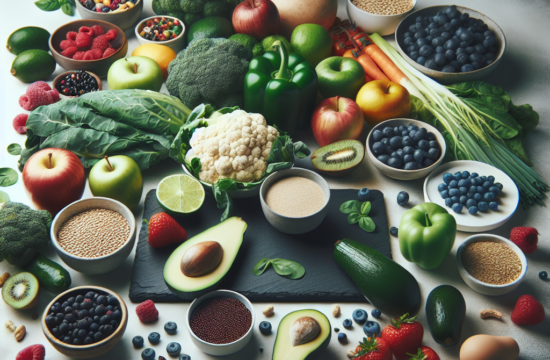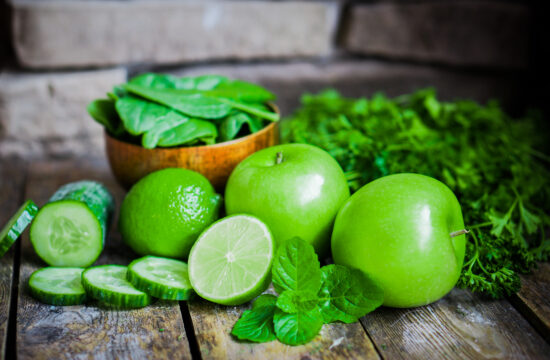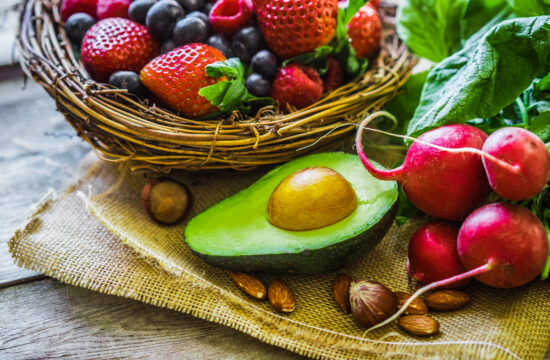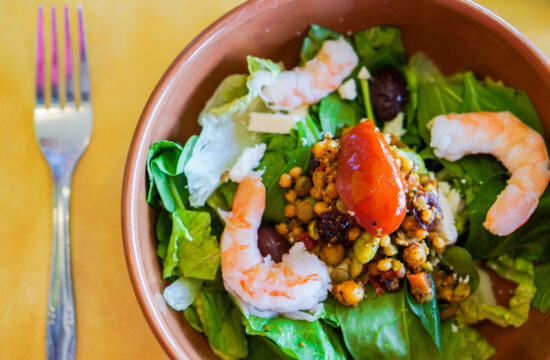Understanding Plant-Based Proteins
Exploring Various Sources
One of the first things I learned on my vegetarian journey was the importance of understanding where my protein was coming from. I mean, we’ve all heard about chicken and beef packing on the protein, but guess what? There are a ton of plant-based alternatives! Legumes, lentils, chickpeas, nuts, and seeds are all fantastic sources. Seriously, if you think about it, each of these options is not just a solid protein source; they also come loaded with other nutrients.
Take lentils, for instance. They’re not just protein-packed, but they’re also rich in fiber and iron. Combining them in dishes like lentil soup or a hearty salad is a great way to kickstart your protein intake! And don’t even get me started on chickpeas—who doesn’t love a good hummus dip? It’s both nutritious and satisfying.
Need a Strong Nutrition Boost for Your Diet? Take a Look...
Incorporating a variety of these sources into your meals can help you hit that protein balance without feeling overwhelmed. The more diverse your diet, the better you can meet your nutritional needs.
Combining Proteins for Completeness
Okay, so now that we know about different protein sources, let’s talk about combining them for complete proteins. Unlike animal proteins, most plant proteins don’t provide all essential amino acids on their own. But don’t sweat it—pairing them can create that complete protein profile! For example, rice and beans together give you all the essential amino acids you’ll need.
Try experimenting with different combinations. For breakfast, think about having oatmeal topped with almond butter, which offers a nice mix of flavors and nutrients. And don’t forget about quinoa—it’s a complete protein by itself, so you can use it as a base for lots of different meals!
Learning about these combinations has made me feel more confident in my choices. So don’t hesitate—mix and match to find what works for you and your taste buds!
Need a Strong Nutrition Boost for Your Diet? Take a Look...
Staying Mindful of Portions
One thing that can sometimes trip folks up, whether they’re vegetarian or not, is portion control. Just because something is plant-based doesn’t mean you can go overboard with it! I’ll be the first to admit, there were days I thought I could munch on those healthy nuts like they were popcorn. Big mistake!
Like with any nourishing diet, it’s about balance. I’ve found it helpful to use smaller bowls or plates for those tasty snacks. It tricks my brain into thinking I’m digging in more than I actually am. Plus, staying mindful of portion sizes helps you keep track of how your body feels—and trust me, your stomach will thank you!
A good balance of proteins, even in moderation, makes a world of difference in nutritional balance. So let’s keep it smart and satisfying!
Getting Your Essential Nutrients
The Big Players: Iron and Vitamin B12
No discussion about nutritional balance is complete without mentioning iron and vitamin B12. I can’t tell you how many people have expressed concern about getting enough iron on a vegetarian diet. While it’s true that plant-based iron isn’t absorbed as effectively as from animal sources, it doesn’t mean it’s impossible. Think spinach, lentils, and fortified cereals to help you out.
And what about B12, you ask? For us vegetarians, it’s often a concern since it’s primarily found in animal products. To combat this, I always make sure to check out fortified foods or even consider a supplement if needed. It’s a little extra step, but a necessary one!
Staying vigilant with a variety of foods helps ensure that you’re also on top of those essential nutrients. It’s all about creating that awareness for yourself and adjusting as you go along!
The Importance of Omega-3 Fatty Acids
Next up, let’s chat about omega-3 fatty acids. These little guys are crucial for our heart and brain health, and as a vegetarian, I’ve had to find some good plant-based sources. Flaxseeds, chia seeds, and walnuts are magical in this regard!
Adding ground flaxseeds to smoothies or oatmeal is such an easy way to sneak those omega-3s into your day. And trust me, a sprinkle of chia seeds in your yogurt creates a delightful texture and boosts your nutrient intake.
Getting creative with these ingredients can keep your meals exciting while making sure your body gets everything it needs to thrive. It’s awesome how simple adjustments can deliver such a packed nutritional punch!
Calcium and Vitamin D for Healthy Bones
Finally, let’s not forget about calcium and vitamin D. These are key players for strong bones, and fortunately, there are ample vegetarian sources. Leafy greens, almonds, and fortified plant milks are a wonderful way to incorporate calcium into my diet.
Good HealthY DIETING Solution is Easier Than Most People Think!
Take a Look for Yourself!
Whenever I can, I opt for fortified versions of my favorite beverages and keep a stash of almonds on hand. It’s an easy snack! As for vitamin D, spending some time in the sun during the day helps, but I also keep an eye out for fortified products, especially as winter approaches.
Staying aware of my calcium and vitamin D needs has helped keep my bones feeling strong and healthy, which is super important for overall wellness.
Getting Creative in the Kitchen
Flavorful and Nutrient-Dense Recipes
Now that we have the basics down, let me tell you about getting creative in the kitchen! Discovering new recipes that tick all those nutritional boxes turned this whole journey into a fun adventure. Some of my go-to dishes include hearty veggie stir-fries loaded with color and nutrients, or a vibrant quinoa salad that’s bursting with flavor.
The key here is to experiment with herbs and spices! They not only add flavor but also nutritional benefits. For instance, turmeric is a fantastic anti-inflammatory agent! Play around with ingredients that excite your palate while also enhancing the nutrition of your meals.
When cooking at home, I feel more in control of what I’m actually eating. Plus, it’s cheaper than dining out all the time. So get those pots and pans sizzling!
Meal Prepping for Success
Meal prepping was a game-changer for me. I can’t stress enough how planning out my meals ahead of time has helped balance my nutrition! Setting aside a few hours on the weekend to prep means I can whip up quick and easy meals during the week without stressing about what to eat.
Portioning dishes into individual servings has also saved me a ton of time and keeps me from reaching for unhealthy options. I usually pick a sturdy grain, a good protein source, and throw in those colorful veggies. It’s like a no-fail formula for happiness in a bowl!
If you haven’t given meal prepping a shot, I’d absolutely recommend it. You’ll feel prepared, and I promise it’ll help you stick to your nutritional goals.
Inspiration from Others
Last but not least, learning from others in the vegetarian community has inspired me more than I could care to admit. Following different food blogs and social media accounts has opened my eyes to a plethora of meal ideas I’d never have considered otherwise!
It’s exciting to see how others make their vegetarian lifestyle fun and flavorful. Plus, sharing tips and tricks is a great way to boost creativity in your own kitchen. There’s a huge community out there, and being a part of it feels pretty awesome!
So whether it’s swapping recipes or just cheering each other on, connecting with like-minded individuals is invaluable. Let’s keep the inspiration flowing!
Frequently Asked Questions
1. Is it hard to get enough protein on a vegetarian diet?
Nope! There are plenty of plant-based protein sources like beans, lentils, tofu, and quinoa. Just make sure to mix and match to get a complete amino acid profile.
2. Do I need to take supplements on a vegetarian diet?
It can be beneficial to take supplements for vitamin B12 and possibly vitamin D, depending on your dietary choices and sun exposure. Always check with a healthcare professional first!
3. What are some easy meal prep ideas for vegetarians?
Some easy meal prep ideas include grain bowls with various veggies and proteins, hearty soups, and salads that can be topped fresh with dressing and protein when you’re ready to eat.
4. How can I ensure I’m getting enough iron on a vegetarian diet?
Include plenty of iron-rich foods like lentils, beans, and spinach. Pair them with vitamin C-rich foods to boost absorption!
5. Are all vegetarian diets nutritionally balanced?
Not automatically! It takes some planning to ensure that you meet all your nutritional needs. Focus on variety and balance to achieve good nutritional health.












